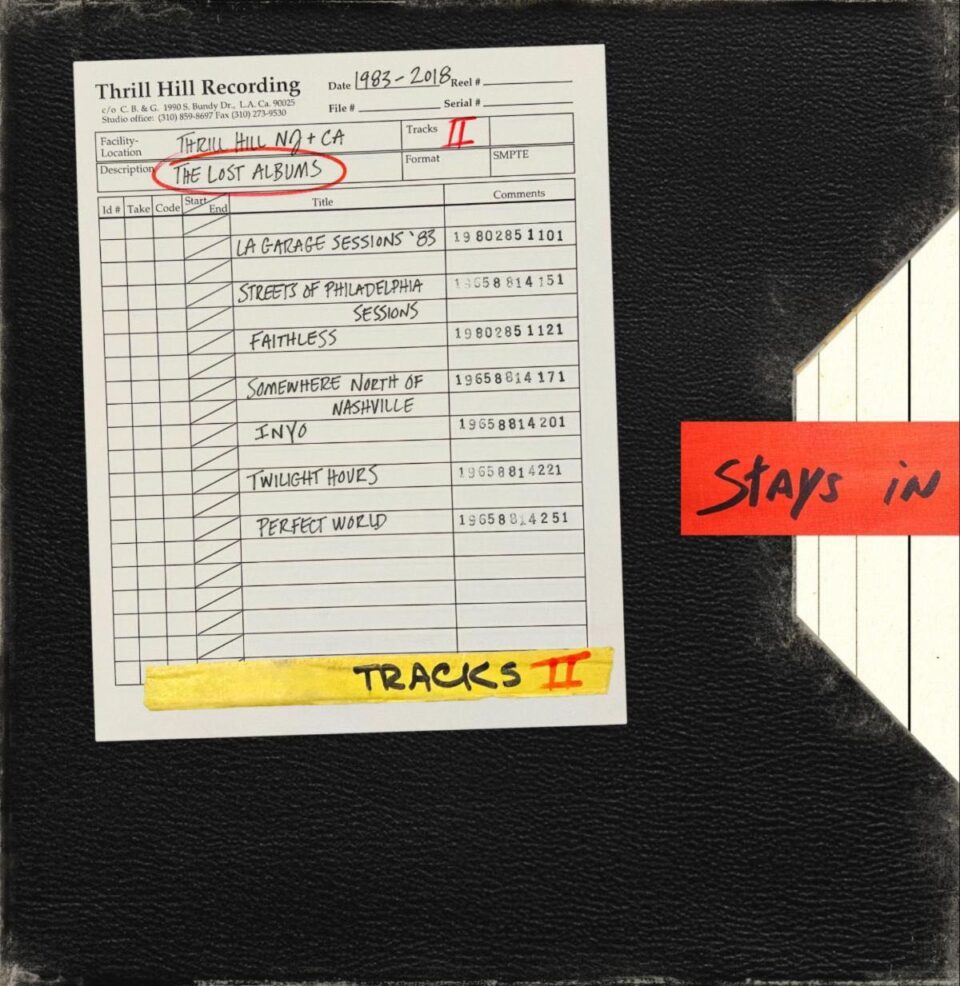PUP are a difficult band to describe. Their fourth full-length THE UNRAVELING OF PUPTHEBAND isn’t going to make it any easier, as it sees the Toronto-based punks creating an urgent collection of songs that feel like they could implode at any moment. From the fuzz-drenched anthem “Totally Fine” to the metal-tinged pop sensibility of “Waiting” and arpeggiated beauty of the ballad “Cutting Off the Corners,” the album is their most sonically exciting yet while still retaining the DIY-punk sensibility that has endeared them to their fans.
We caught up with vocalist Stefan Babcock to talk about wrestling with imposter syndrome, why he thinks of PUP’s lyrics as the opposite of an Instagram feed, and why things keep working out for the group despite their best efforts at self-sabotage.
Something I really appreciate about PUP is the honesty that comes across in the music. A lot of people assume that just because you’re in a band it’s always fun, and PUP brings some of those other aspects to the forefront that not a lot of other bands do.
I have this thing in my brain where the lyrics that I want to write should be the opposite of an Instagram feed. I think with most bands, you see their Instagram feed and it looks just awesome and everyone’s having fun—and I’m just kind of trying to be honest about all the dark sides of life that come with choosing this lifestyle.
What was this record like for you lyrically? Where did some of these ideas come from?
I kind of view every record as a six month, maybe year-long snapshot of where I’m at in life. Our last album Morbid Stuff was a pretty dark time for me, and I think when I was writing this record I was kind of coming out of the darkness. I’m not out of the darkness—I won’t ever be out of the darkness totally—but finding more humor in the state of the world and in my own coping with existential dread has been really important to keeping this band experience a positive one for all four of us.
“Finding more humor in the state of the world and in my own coping with existential dread has been really important to keeping this band experience a positive one for all four of us.”
You reference the Turing Test and artificial intelligence on “Robot Writes a Love Song.” Do you ever worry about robots becoming more intelligent than us and taking over?
I like that you’re reading into that song, it’s really nice that you’re giving me the benefit of the doubt here. [Laughs.] But the honest truth about that is I sat down trying to write a legitimate love song because I’ve never done that before. I’ve never written a love song that wasn’t couched in nihilism, and I sat down to write a really heart-on-my-sleeve love song and it was awful. It felt so disgusting and contrived—it was like I was pulling out every cliche. I felt like it was a song I would have written when I was 14, that’s how bad it was. Then I just decided to see if I shifted perspective and took it away from myself—if I wasn’t writing necessarily in the first-person, but used the same type of metaphors—if the song would feel better and immediately there was more humor and levity.
My favorite line on the record is, “I used to be reckless and too broke to eat / Now all of my friends have bidets in their en suites.” Where did that lyric come from?
First of all, I love that you picked out that line because until somebody in the band asked me about it, nobody understood what I was saying at that part. I’ll tell you, but I’m really curious to hear what your thoughts are before I taint them…

I saw the song [“PUPTHEBAND Inc. Is Filing for Bankruptcy”] as being about punk guilt, because a lot of the record seems to be about the business aspects of the industry or the way your life has changed throughout the course of the band. Maybe it was an exaggeration, but a commentary about getting older and existing in this DIY paradigm.
That’s pretty close. I mean the chorus of that song is, “Failing upwards again,” right? It’s like this feeling that we’re just a group of dudes who by any standard would be considered fuck-ups. We just keep self-sabotaging ourselves and things just continue to work out for us. We’re very lucky in that way. And there’s a lot of DIY guilt, because we’re certainly not a DIY band anymore, even though we started out that way. So that part’s definitely accurate.
I wrote the line “Now all my friends have bidets in their en suites” in the studio, and I was thinking about how on our first record we were so broke. We had a two-bedroom apartment, I was sleeping in a room on the floor that didn’t have any windows—it was pretty much a closet. It was that classic broke-ass band-at-the-beginning-of-their-career kind of thing. I was thinking about making that record and how so much had changed on this fourth record: We were in this beautiful studio where we were also living and each of us had our own bedroom and every bedroom had an en suite and it was just this weird, surreal almost, like, rap moment for me where I was like, “Man, shit has changed, we’re very different people than when we started this band.” Actually that’s incorrect: The circumstances are very different and we’re still the same people and there’s an interesting paradox in that.
“We were in this beautiful studio where we were also living and each of us had our own bedroom and every bedroom had an en suite and it was just this weird, surreal almost, like, rap moment for me where I was like, ‘Man, shit has changed.’”
Back then you probably didn’t even know what an en suite was.
I definitely didn’t know what a bidet was. [Laughs.]
Mental health is a subject you’ve spoken about a lot and addressed in your music. Is that something that’s difficult for you to write about? Or do you feel comfortable doing it at this point?
I’m definitely getting more comfortable with it. I think the strange thing about it is I don’t think about it when I’m writing. I try never to think about what the external perspective of these songs is going to be when I’m writing, and I know the guys feel the same way about the musical side of things. The biggest struggle for me is after the record is done and I have to start considering the fact that I put this part of me out there that could be received well or not. That’s been hard for me, and also hard for a lot of the people who are close to me, just because they see how it affects me. Or sometimes I write about them in the songs and it can be hard for them to accept that I’m airing their dirty laundry.
So it’s definitely more challenging in the release stage, and it’s something I struggled with a lot on the last record. Like I said, I was in a really dark place, and I didn’t really consider the fact that I would have to talk about my depression for, like, two years straight after that. I very quickly had to become comfortable with that element of the gig: Talking about it, being as open as I could be in interviews, as open as I hope I was in the songs. I do think it’s good to talk about and de-stigmatize it, it’s just not something I was ever aiming for when we were writing.
It seems like there’s an element of struggle with accepting the success of the band on this album. There’s a lot of self-deprecation on the record, but obviously you have a very enthusiastic fanbase. How do you balance your own self-doubt with the fandom that comes your way?
It’s not great. There’s a lot of imposter syndrome going on. It’s gotten a little bit better, but it’s still there and I’m still full of self-doubt—and honestly I think the other guys feel it, too. If you’re depressed and you have a certain self-image, it doesn’t really matter how much external validation you get, it’s not going to change your brain chemistry. It’s not going to change your outlook on anything.
“The best thing you can hope for in a band is not what other people will think, it’s, ‘Am I going to be happy with this?’ or ‘Are my bandmates happy with this?’ If we are, we did the best job that we could do regardless of how successful or not-successful it is.”
There’s always this idea with people where it’s like, “Oh, when I get to this level of my career I’ll get happy,” or “When I move cities I’ll be happy,” or “When I find a partner I’ll be happy.” Those things might make things easier or better, but at the end of the day those are probably not the root causes of your unhappiness or your self-doubt or your lack of belief in yourself. So external validation doesn’t do a whole lot to combat that stuff. It’s really easy to read the comments and see 99 really positive comments and write them off and see one negative comment and be like, “This person knows what’s up.”
On a more positive note, listening to this record once it’s mixed and mastered, do you have a feeling of satisfaction?
I’m really happy with it, and I feel like I’ve been that way for all four records. The best thing you can hope for in a band is not what other people will think, it’s, “Am I going to be happy with this?” or “Are my bandmates happy with this?” If we are, we did the best job that we could do regardless of how successful or not-successful it is. On all our records I think I came home feeling like the four of us really did the best work that we could have under the circumstances. I feel really grateful to be given the opportunity to work with a guy like Peter Katis, who produced the record, and for people to give us enough money to go and spend five weeks in a nice studio and completely make the record that we wanted to make, and grateful that no one’s trying to steer us in any direction that we don’t want to be steered in. So I just feel like we’re in a good spot and I don’t take it for granted. FL









